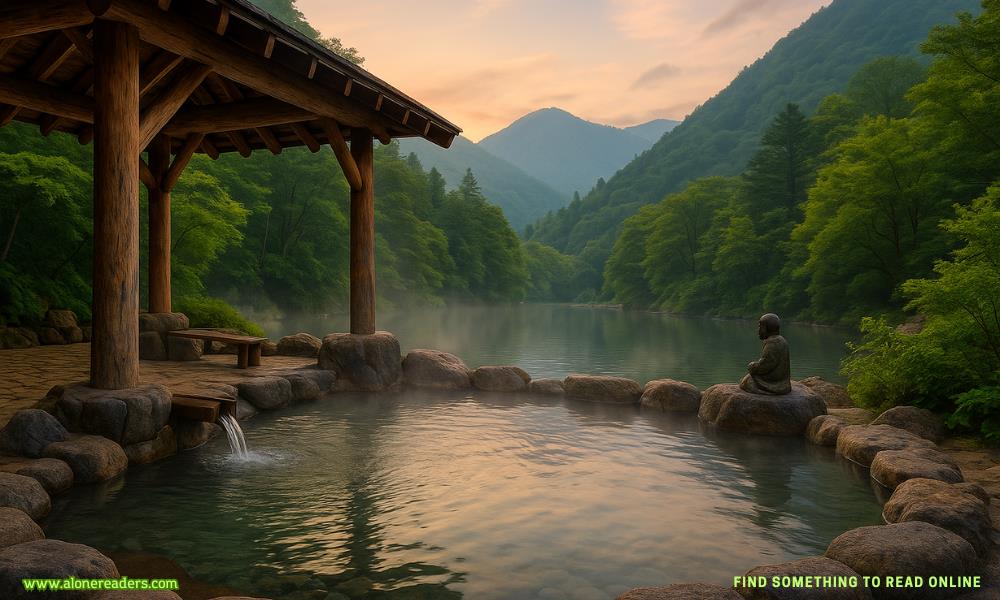Page 73 of In the Garden of Monsters
I wanted to find out. “Do you know the name Aidoneus?” I asked Ignazio. It was the question I’d wanted to ask if I had won the staring contest.
He pulled me closer. “It meanshusband,” he said, his voice like silk.
That was not the answer I had expected. His skin burned against mine, and I wondered if I might burst into flame or melt into the earth.
“You made a choice.” His breath was hot summer in my ear. “You can make it again.”
“What choice?” I asked, alarmed.
Beware...
The windows overlooking theboschettoglowed with a new intensity. I wondered why none of my companions noticed.
“You chose me. And you can choose me again.”
Before I knew what was happening, his lips were against mine, crushing against me until I softened, fell into him, and nearly lost myself. The night before had barely been a kiss at all, a brush of the lips, enough to whet my appetite. This was something more, a promise...dare I even think it?...a commitment.
Julia, beware...
The whisper gave me the courage to break away once more. It didn’t matter how much I wanted him... I couldn’t give in. “No. I can’t do this. Iwon’tdo this.”
I looked around. No one had noticed us—they were all lost in the dance, Dalí sublime in his golden chair, tapping his thunderbolt against the arm in time with the music.
Ignazio suddenly fell into a kneeling bow at my feet. “My ardor for you got the better of me. Forgive me.”
The windows glowed bright green, a wild light that pulsed. Like it did that first day I arrived, it was keeping time with every fluttering beat of my heart. I backed away from the windows, away from Ignazio. The world spun around me again, and I closed my eyes, willing everything to disappear. When I opened them, Ignazio was nowhere to be found, the windows were black with the night, and I was standing next to Dalí, Gala was waltzing with Jack, and Paolo with Lillian. She grinned when she saw me looking in their direction.
“Pull up a chair, dear Proserpina,” Dalí suggested, indicating with his lightning bolt that I should retrieve a chair from the other side of the room. The golden one next to him was unoccupied, but, clearly, it was reserved for Gala.
“You are troubled,” he said as soon as I had sat down.
I was surprised. Dalí wasn’t one who seemed to care about or even notice the people around him.
“This place, it is...unsettling,” I said. I wasn’t sure how I could possibly tell him any of my real concerns.
“As it should be.”
“Why?” I asked.
He regarded me with new interest. “Why?” he parroted.
I nodded. “Sì.Why should it be so unsettling?”
He looked down, as though he were ashamed of the answer. “We are caught here, in between everything.”
I waited for him to explain but he only stared at the tiles. I touched him on the arm. His skin was cold, and he recoiled as though my hand was poison.
“I’m sorry,” I said, flustered by his reaction. “You just looked lost.”
“Sì.We are all lost.” He spoke as though he were in a trance, a blank stare on his usually animated face.
“What does that mean, Maestro Dalí? What are we caught between?”
“All of this,” he said, waving the lightning bolt around at the room in front of us, “could be different, Julia. All of it. If you weren’t merely a muse and you were an artist.”
I gritted my teeth. “I am an artist.”
“Then prove it. Paint this away. Change it. Paint your way forward. You are the only one in the room with the power to do so. My paintings are only a door. I cannot make you step inside.”
- Cinderella and the Outback Billionaire by Kelly Hunter
- Beautiful Venom by Rina Kent
- Connor by Samantha Skye
- Mated by Jenika Snow
- Daddy by J.L. Quick
- Fetch by M. Violet
- Loving My Brother's Best Friend by Lena Little
- Hot Cops by Mari Carr
- The CEO by Alexis Winter
- Phixmery by S.E. Alexander
- Veil of Smoke by Sarah Sterling
- Veil of Ashes by Sarah Sterling
- Giovanni the Savage by Sarah Sterling
- Summer Love by Lea Coll
- Sullied Saints by Eva Heart
- Stalked by Leo Rivers







